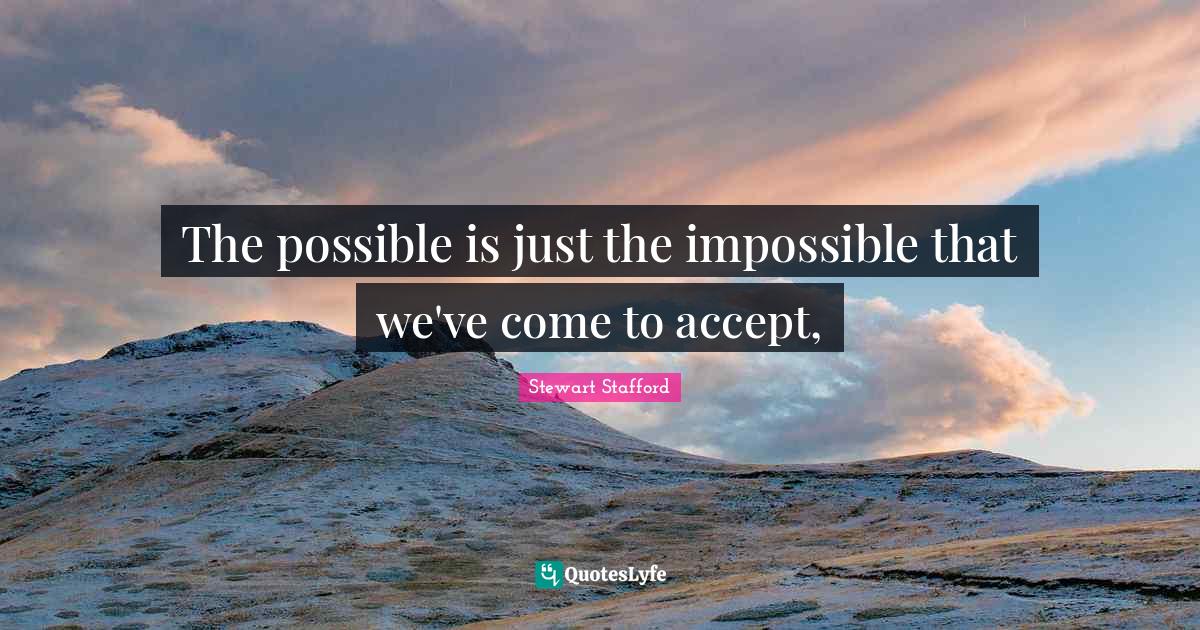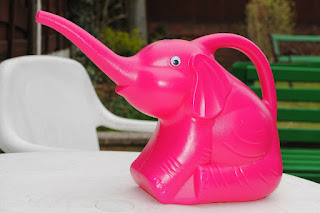Bargain-Priced Candy Hearts and the Importance of Audience
We've reached my favorite part of February: when all of the Valentine's Day candy goes on sale.
One particular type of candy that has grown on me over the years is the conversation, candy heart. When I was little I thought they tasted like chalk, but maybe they've improved the recipe over the years? Regardless of flavor changes, the messages on the hearts have definitely been updated.
Digging through a
little box of colorful hearts, I can't help reading each little message as it comes up: "love", "laugh", "be mine",
"smile", "you & me", "cute", "rock
star", "hug me", and others are fairly obvious. But then there
are hearts with messages like: "TTYL", "DM me",
"lol" and "LYMY". I actually do understand the first three
(talk to you later, direct-message me, and laugh out loud) but the fourth is a
complete mystery to me. (EDIT: I've looked it up and apparently it stands for
"love you, miss you".)
This variety of mini-comments makes me think of what we mean when we advise writers to consider their audience. Maybe some of you already knew what LYMY meant. Maybe others would be confused by hearts reading "XOXO" or "BFF". Fortunately, the candy will taste the same whether you know that x's and o's are sometimes used to represent kisses and hugs in correspondence, or that BFF stands for "best friends forever," but scholarly writing does not benefit from the same sugary advantage.
Anything we write
has an intended audience--even if that intended audience is ourselves or an
intended audience of no one. When you write for coursework there is the obvious
audience of the faculty who will grade the work, but there is also often an
implied audience. Perhaps you've been instructed to write a lesson plan to
share with another educator; a business memo to be shared with a large
corporation; an interpretation of and diagnosis for a certain case study.
You'll of course want to make sure you respond to each component of the
assignment prompt, but you should also consider who you're conceptually writing
for.
-
What kind of information can you assume your audience will already
have about the topic?
o
Would you need to explain what TTYL stands for?
-
What context does your audience need?
o
The fact that they are Valentine’s candy would suggest that
messages like “smile” or “call me” have a different sentiment than they would coming
from a photographer or a business card.
-
What are you ultimately hoping to achieve with regards to your
audience?
o
When you send a Valentine to a friend, the message will likely be
different than the one you send to your romantic interest.
To help you remember how to acknowledge the importance of your intended audience, here’s a somewhat forced acronym relating back to candy hearts:
How: how are you expected to present your information? The mode of communication will provide some clues into who your intended audience might be.Expectation: what
can you expect your intended reader to already know?
Additional: what
extra background information will your reader need you to provide in order to
fully understand what you’re trying to say?
Response: is there
something you hope your reader will do with the information after reading? Are
there potential questions or arguments you could circumvent by addressing them
in your writing?
Task: what is the ultimate
task you’ve been given with regards to the assignment? Would your reader be
able to easily determine it based on what you’ve written?
To my intended
audience: I hope you had a fun Valentine’s Day—or are at least similarly
benefiting from reduced-price treats. And I hope this acronym and post in general
are memorable enough to help you in your next writing assignment!
 Kacy Walz is a writing instructor from St. Louis, MO. She is currently working on a PhD in Literature from the University of Missouri. Along with her work on the blog, Kacy also cohosts the Walden Writing Center podcast. She enjoys piña coladas and getting caught in the rain.
Kacy Walz is a writing instructor from St. Louis, MO. She is currently working on a PhD in Literature from the University of Missouri. Along with her work on the blog, Kacy also cohosts the Walden Writing Center podcast. She enjoys piña coladas and getting caught in the rain..png)
2022: Just Keep Swimming
In his 2017 bestselling book Finish, author Jon Acuff writes, "I thought the biggest problem for people was the phantom of fear that prevented them from beginning...Fear was the ghost holding them back and starting was the only way to beat it. I was half right. The start does matter. The beginning is significant. The first few steps are critical. But they aren't the most important. Do you know what matters more? Do you know what makes the start look silly and easy and almost insignificant? The finish."
Last March I introduced the blog's 2021 theme of Motivation. This year--a year actually beginning in January!--I'd like to continue that concept into a new theme: the theme of Momentum.
As Acuff points out, starting is important. And motivation can help us get to the starting line. But momentum is what gets us through the slog of the "messy middle." According to Acuff, the most important point of any major goal or project is what happens "the day after perfect."
The day after perfect is what Acuff calls the period of time that follows the first instance someone doesn't live up to their own idea of what the completion of their goal should look like. It's the day after the first time you hit snooze instead of waking up early for a run, the night after the night you fell asleep without writing in your journal, the meal after you passed on the salad bar and went straight for dessert. It's the moment you might be tempted to say, "Well, I've already messed up, might as well just give up entirely!"
There's an old cliche that says something to the effect of, 'just because you break one plate doesn't mean you should throw every other plate on the ground.' And this seems totally obvious, but it's amazing how often I find myself tempted to do just that. Metaphorically, I mean...So this year we're going to try to build on our motivation and find the momentum to keep moving forward even after our plans go slightly askew. The topic will be applied to writing-related issues, but hopefully these ideas will be useful in all areas of life. Here's to 2022!
Reference
Acuff, J. (2017). Finish: Give yourself the gift of done. Portfolio/Penguin.
The Benefits of Regret
I can't believe it's already the end of December. It seems this past year was both unending and insanely short. (Or is that just me?) I introduced the blog's theme of motivation in March and--while it hasn't been a full year--it seems fitting to look back at that theme and start planning for 2022. (It will probably be March again before I'm able to write 2022 without either first writing 2021 or feeling the need to double-check that I'm not making up a year).
My WriteCast cohost, Claire Helakoski, will be posting an episode focused on SMARTER goals at the beginning of next month and the discussion we had got me thinking about how we can use reflection--as well as careful planning for the future--to ensure we move forward in our most important goals. In particular, I'm wondering if there's a way to reframe supposed 'failures' and regrets so they can propel us in a positive way rather than holding us back.
Much research has been done on the ways thoughts impact reality. As productivity coach Michael Hyatt (2021) put it, "we tend to experience what we expect...our success ultimately depends on our ability to tell the difference between reality and the story we are telling ourselves...when we believe we can't, we don't. The difference is all in our heads" (p. 18). Similarly, author Stewart Stafford argued, "the possible is just the impossible that we've come to accept" (QuotesLyfe.com). Basically, how we frame things in our own minds is important.
This is why I think it would be a good idea to (re)frame how we might usually think about our past mistakes, regrets, and anything we might consider a failure. Some of my favorite motivational quotes run along the lines of, 'failures are actually opportunities for learning' but at times this can seem cliché or flippant. Personally, I find these quotes inspiring in general, but less helpful in times I find myself overthinking things I've done or avoided doing. If you're like me, hearing "don't think about pink elephants" instantly conjures images of those animated "heffalumps" from "Winnie the Pooh and the Very Blustery Day" (or some other version of elephants in shades of faded red). And quotes like "we learn from failure, not from success", at a time when I'm overthinking, read as platitudes rather than sound advice (Stoker, 2000, p. 103).
Research has also found that attempting to 'just get on with things' rather than allowing yourself to deal with regret is actually more damaging than we might think. Janet Landman (1993), a psychologist from the University of Michigan posited, "Regret may not only tell us that something is wrong, but it can also move us to do something about it" (p. iii). And University of Illinois researchers Neal Roese and Amy Summerville (2005) conducted an in-depth study about regret and found "people's biggest regrets are a reflection of where in life they see their largest opportunities; that is, where they see tangible prospects for change, growth, and renewal" (p. 1273). Basically, we tend to particularly dwell on mistakes we've made where we are most easily able to determine what misstep preceded, or what alternative action could have likely changed the outcome for the better.References
Hyatt, M. (2021). Your best year ever. Michael Hyatt & Company, Inc.
Landman, J. (1993). Regret: The persistence of the possible. Oxford University Press.
QuoteLyfes.com. (n.d.) Steward Stafford quotes. https://www.quoteslyfe.com/quote/The-possible-is-just-the-impossible-that-258026
Roese, N. J., & Summerville, A. (2005). What we regret most...and why. Personality and Social Psychology Bulletin, 31(9), 1273-1285. https://doi.org/10.1177/0146167205274693
Stoker, B. Dracula. Dover Publications, Inc.
Kacy Walz is a writing instructor from St. Louis, MO. She is currently working on a PhD in Literature from the University of Missouri. Along with her work on the blog, Kacy also cohosts the Walden Writing Center podcast. She enjoys piña coladas and getting caught in the rain.
.png)
How to Find and Keep Your Confidence as an Academic Writer
How does confidence impact writing and the motivation to write? What adds to our confidence when it comes to writing, and what diminishes it? How can a writer maintain, develop, or rebuild confidence in their writing skills?
To begin with a definition (because it's probably best to know what the thing is before we discus how to increase it!), Merriam-Webster (n.d.) described confidence as "a feeling of or consciousness of one's power" and "faith or belief that one will act in a right, proper, or effective way." In other words, confidence is trusting that we are capable of accomplishing a goal we've chosen to pursue or a task we've been assigned. Confidence is feeling good about our ability to be who we want to be and do what we want to do.
Reciving a disappointing grade, or criticical feedback that doesn't seem helpful understandably brings us down, especially if our confidence when it comes to writing is already shaky. Also, if we feel we're alone in the writing process, or like we don't know enough about academic writing as a genre to be able to do it well, we definitely won't be enjoying the good feelings confidence brings.
But there is hope. (We definitely wouldn't publish this post if we didn't think so!) When it comes to academic writing and APA style, the Walden WritingCenter’s website offers a number of resources to help students learn more about the expectations involved. We also strongly encourage you to reach out to your professors to clarify what is required of you for any assignments that seem confusing or unclear, or to discuss any feedback they provide. Finally, forming meaningful relationships with your fellow students--for instance, creating spaces where you can vent to, commiserate with, and encourage each other--can help keep those feelings of loneliness at bay.
Reference
Merriam-Webster.
(n.d.). Confidence. In Merriam-Webster.com dictionary. https://www.merriam-webster.com/dictionary/confidence
Grete Howland is a writing instructor who's been with the Walden Writing Center since 2019. Before joining the Writing Center, Grete taught English and creative writing to middle and high school students. When she's not working with words, Grete loves paddle boarding, running, wine tasting, and hanging out at home with her husband and dog.
Keep Your Motivation on Track with the Pomodoro Technique
 - 25 minutes work
- 25 minutes work
- 5-minute break
- 25 minutes work
- 5-minute break
- 25 minutes work
- 5-minute break
- 25 minutes work
- 20-30-minute break
- 5-minute break
- 25 minutes work
- 5-minute break
- 25 minutes work
- 5-minute break
- 25 minutes work
- 20-30-minute break
Here are some key factors that I find make me more successful in implementing the Pomodoro Technique:
Tailor the System
I recommend that you experiment with the system and find the time spacing that works best with your own neurology. If 25 minutes of work and a 5-minute break doesn’t quite fit, you may find you work better in 30-minute chunks of time with 10-minute breaks. Maybe you will need to write for 10 minutes and take a 3-minute rest. Don’t be afraid to work the system to meet your working style.
Treat Yourself
A reward system tied to achieving your goals might also be helpful. Some folks are motivated sufficiently by the act of checking items off a to-do list, but I confess that I like a more tangible reward. The short break is a type of reward, but If I have a particularly challenging day where I cannot find the motivation to stay on task, I may add more rewards into my short breaks to keep me interested in pushing forward. In a five-minute break, I can do a quick game or dance party with one of my children, which is not only fun, but allows me to reconnect with family before getting back to writing. Throughout the day, I track how many Pomodoro sets I have completed, and if I have met my daily writing goal, I have a small reward like a square of dark chocolate and a cup of Earl Grey tea. When I meet a weekly writing goal, I want a more significant reward like a 2-hour binge of my latest favorite show or a grown-up playdate (NO KIDS!). What brings you joy? Use that to reward yourself for getting the job done.
Tackle Distractions
During your work time, set yourself up for success by keeping distractions at bay. Mute your phone, don’t answer the door, find a quiet space or put on sound-canceling headphones, and take advantage of tools and apps on your computer (such as Microsoft’s Focus Assist or the Stay Focusd Chrome extension) to avoid the distractions of instant messaging, social media, and email notifications. If random thoughts intrude that you can’t ignore, quickly jot the ideas down in a notebook to deal with later and get right back on task.
Don’t overthink the Pomodoro system, or you might plan yourself into procrastination. You don’t need the perfect timer, a semester time grid, or a reorganized workspace to get started. Any digital or analog timer will do, so you can start right now. What can you write about for 25 minutes? I hope you’ll report back on how it went, maybe over a cup of Earl Grey.
.png)
Never miss a new post; Opt-out at any time


















